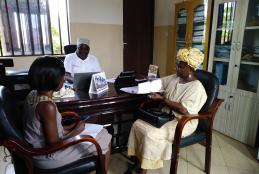“Elimika” & “Wajibu Wetu to be rebranded to “Elimika Wajibika-Vijana Amkeni”
“There is need to rebrand Elimika and Wajibu Wetu into one formidable and inclusive Programme. This rebranding will connect three circles of knowledge that is the University of Nairobi, Elimika and Wajibu Wetu,” said the UNESCO/UNITWIN Chair, Prof. Judith Bahemuka. “The youth programme is centered on facilitating young people’s active participation and engagement with systems, technologies, institutions and governments, towards finding space for expression and growth.”





